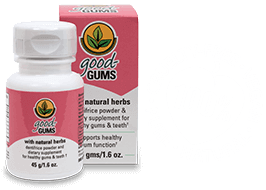Gum health and retaining your teeth, at its simplest level, entails keeping your soft mouth tissue robust and the bacteria of your mouth in balance.
Our bodies aren’t biological machines; they’re living organisms that have adjusted over the eons to live in harmony with the other life forms and the life-sustaining substances of our planet. That means being symbiotic with the ubiquitous bacteria. Typically there are about as many bacteria living in a pinch of soil with the weight of two paper clips as there are people living in Spain (or in New York, New Jersey, Pennsylvania and Connecticut combined or in California, Oregon and Nevada combined). Some bacteria thrive in the soil while converting inert chemicals into forms usable by living plants; others thrive in host animals by breaking down food so that their hosts can absorb their nutrients. It’s as if the simpler forms of nature cooperate to allow higher creatures to manifest. From one perspective, our bodies are mobile ecosystems for bacteria; we carry at least ten times as many bacterial cells as the human cells that make up our body. Our human digestive tract wouldn’t function without its “tenants” of bacteria. Our mouth is an important part of our digestive tract, not merely a place where food is chewed into pieces small enough to swallow but a place where oral bacteria start the digestive process.
Achieving gum health doesn’t involve trying to kill all the bacteria in the mouth, whether by mouthwashes with alcohol or by antibiotics. It would be an impossible task anyway to eradicate the over 350 species of microorganisms that typically live in a healthy mouth. A better strategy is to maintain a healthy limit on the couple dozen or so bacteria associated with gum disease and to support the vitality of the gums.
Gum Health in the Age of Nutrient-poor Processed Foods
Achieving gum health requires diligence in this age of industrially-processed and refined food ingredients. Bacteria respond differently to refined food ingredients than they do to naturally occurring food, and a big factor is how quickly our modern foods are turned from refined carbohydrates (that are found a variety of foods from chips to processed entrees) into sugars. In a sugar rich environment, plaque bacteria can develop quickly from individual cells into long chains and then into toxin-secreting colonies at rates unprecedented in the entire past of our species. To keep our gums healthy and the plaque bacteria in check, we need to develop habits and practices not needed by our hunting-and-gathering ancestors.
Refined foods also have less “nutrient-diversity” than naturally occurring foods. A typical food manufacturer or food seller prefers foodstuffs manipulated for delayed decomposition, so that they can be manufactured, distributed, and stored by the same industrial methods similar to those that were developed and enhanced for non-edible goods manufactured of plastics and metals. Our hunting-and-gathering ancestors only needed their food to remain viable from the meadow to the village, not from one continent to another. But the modification of nutrients in refined foods not only lengthens its shelf life, it also de-natures the food and can introduce imbalances into our living cells.
We can’t go back to hunting-and-gathering in pristine forests, but we can take steps to maintain and even restore the health of our gums.
For gum health we recommend a combination of habits and practices to manage the bacterial populations and targeted nutrients for supporting the health of gums. Other pages of this website offer a vitamin, herbal and mineral formula called Good-Gums to support for your body’s untapped potential to restore the health of your gums. Good-Gums is comprised of natural ingredients whose beneficial effects have been established and confirmed by a number of clinical trials, studies and peer-reviewed scientific articles.
Good-Gums provides three kinds of support:
- Support of the growth of healthy new gum cells (unique to Good-Gums)
- Support of antimicrobial defenses against oral pathogens
- Support of soothing your tissues while they recover
This formula for gum-oriented support can be used along with those practices.
More detailed information on gums, gum health and gum problems can be found in other articles in this website. If we neglect our gums, they change from being firm and healthy to becoming inflamed (gingivitis). Eventually some of the inflamed cells start dying off (periodontitis). Usually there’s no pain or sensation for quite a while. But day by day, cell by cell, gum disease can undermine the likelihood of sustaining gum health and retaining our teeth.
It turns out that gum health is even more important than our cosmetic appearance, our breath’s scent or even retaining our teeth. Unhealthy gums have been associated with serious diseases such as heart disease, arterial plaque, stroke, diabetes-complications and even pancreatic cancer.


